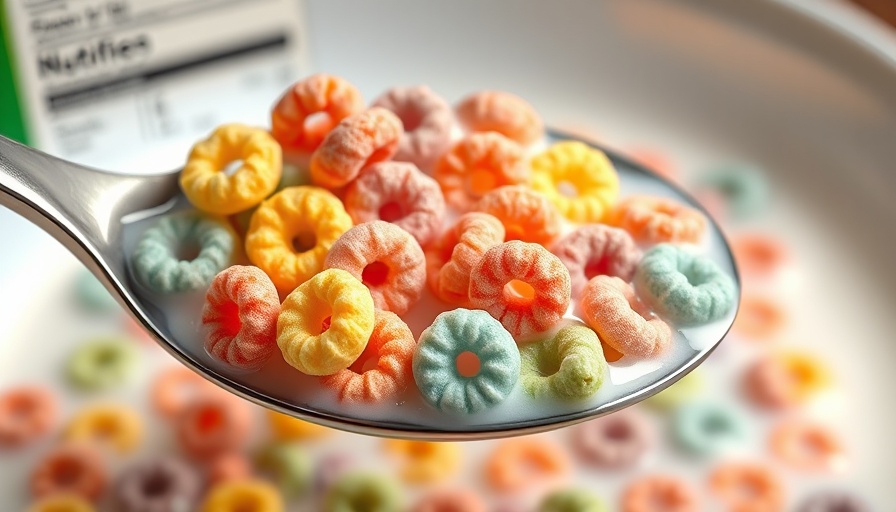
Why Sugar-Loaded Cereals are a Health Concern
When it comes to breakfast, cereal has long been a staple in households across America. Yet, as many parents strive for healthier options for their families, it's essential to recognize that not all cereals are created equal. Some are laden with sugar, artificial colors, and preservatives, posing serious health risks.
Many breakfast cereals contain alarming amounts of sugar—often exceeding 10 grams per serving—while lacking vital nutrients like fiber and protein necessary for sustained energy and fullness. Learning to identify and avoid these sugar-loaded cereals can empower families to make healthier breakfast choices that fuel their days.
Top Sugar-Laden Cereals to Avoid
To help navigate the cereal aisle, here are some of the worst offenders:
1. Froot Loops
Despite the vibrant colors and enticing marketing, Froot Loops consists of nearly 42% sugar, packing around 12 grams of sugar per serving and a meager 2 grams of fiber. Additionally, it contains artificial colors and health-adverse preservatives like BHT.
2. Cap’n Crunch
This cereal is beloved for its sweet crunch but doesn’t deliver on nutrition, containing minimal fiber and an overwhelming amount of added sugar. Regular consumption can lead to weight gain and long-term health issues like type 2 diabetes.
3. Trix
Though marketed toward children, Trix cereal is filled with sugar and artificial dyes that may cause hyperactivity. With very low fiber content, it leaves eaters feeling hungry soon after and offers little nutritional benefit.
4. Cocoa Puffs
This chocolate-flavored cereal may be a favorite among kids, but a single serving contains around 14 grams of sugar. While they may fortify some vitamins, the high sugar levels make them a poor choice for daily consumption.
Choosing Healthier Alternatives
Understanding which cereals to avoid sets the stage for healthier choices. Here’s a look at some great alternatives that prioritize nutrition:
1. Ezekiel 4:9 Sprouted Grain Cereal
This high-fiber option includes sprouted whole grains and is vegan, flourless, and non-GMO. With 8 grams of protein per serving, it stands out as an excellent morning choice.
2. Nature’s Path Organic Heritage Flakes
Full of ancient grains, this cereal provides 7 grams of fiber and 5 grams of plant-based protein while containing less sugar and no artificial additives.
3. General Mills Cheerios
These heart-healthy O’s are made from 100% whole-grain oats and provide a wholesome start to the day with just 1 gram of added sugar.
Empower Your Breakfast Choices
Armed with the knowledge of which cereals to avoid, families can turn breakfast into a moment of nutritious inspiration rather than regret. Opting for cereals with whole grains, high fiber content, and minimal sugar lays the groundwork for better health.
Making Life-Long Culinary Changes
Embracing healthier breakfast options does not have to be a daunting task. Challenge yourself to explore various cereals available at local health stores and grocery aisles. Experiment with toppings like fresh fruits or nuts to add flavor and nutrients. Remember, the goal is to create a balanced, fulfilling breakfast that energizes the body and sets a positive tone for the day.
Take Control of Your Health
With breakfast being such a critical meal, understanding the impacts of what you consume sets you on the path towards better health and wellness. Explore healthier eating habits and consider investing in nutritional knowledge by reading health and wellness books or attending community health events.
 Add Element
Add Element  Add Row
Add Row 



 Add Row
Add Row  Add
Add 


Write A Comment